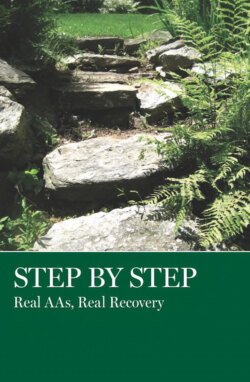Читать книгу Step by Step - Группа авторов - Страница 12
На сайте Литреса книга снята с продажи.
ОглавлениеSTEP THREE
“Made a decision to turn our will
and our lives over to the care
of God as we understood Him.”
“Step Three calls for affirmative action,” the essay in Twelve Steps and Twelve Traditions states. “It is only by action that we can cut away the self-will which has always blocked the entry of God—or, if you like, a Higher Power—into our lives.”
The Big Book uses even stronger words about self-will: “We alcoholics must be rid of this selfishness. We must or it kills us! ”
And so, AAs move toward the action Steps, where they prepare to take inventory, admit the nature of their wrongs, ask for help in removing their character defects, and make amends.
The AAs in this chapter talk about the various parts of Step Three: making a decision, what it means to turn over their will and lives, and God as we understand him—or, for many AAs, as we don't understand him.
“I was too confused to be even a good agnostic,” an AA wrote in a 1981 Grapevine story. “The turning of my will and life ‘over to the care of God as we understood Him' implied that some sort of understanding had to come first.” It was only after years of searching that she let go of her need to understand God. “Everything is easier now that I have a Higher Power that I don't understand.”
“Good" replaces “God” in some AAs' beliefs. Other use AA itself, or “Ultimate Purpose of the Universe,” or “Collective Wisdom” as their Higher Power. “I notice that there are a lot of people who … spend their time trying to find this ‘God they understand' in order to turn their will over to him/her,” an atheist AA wrote in a 1998 Grapevine story. “There doesn't have to be a recipient of their will: All they have to do is let it go.”
In these stories, find out how other AAs have approached Step Three.
